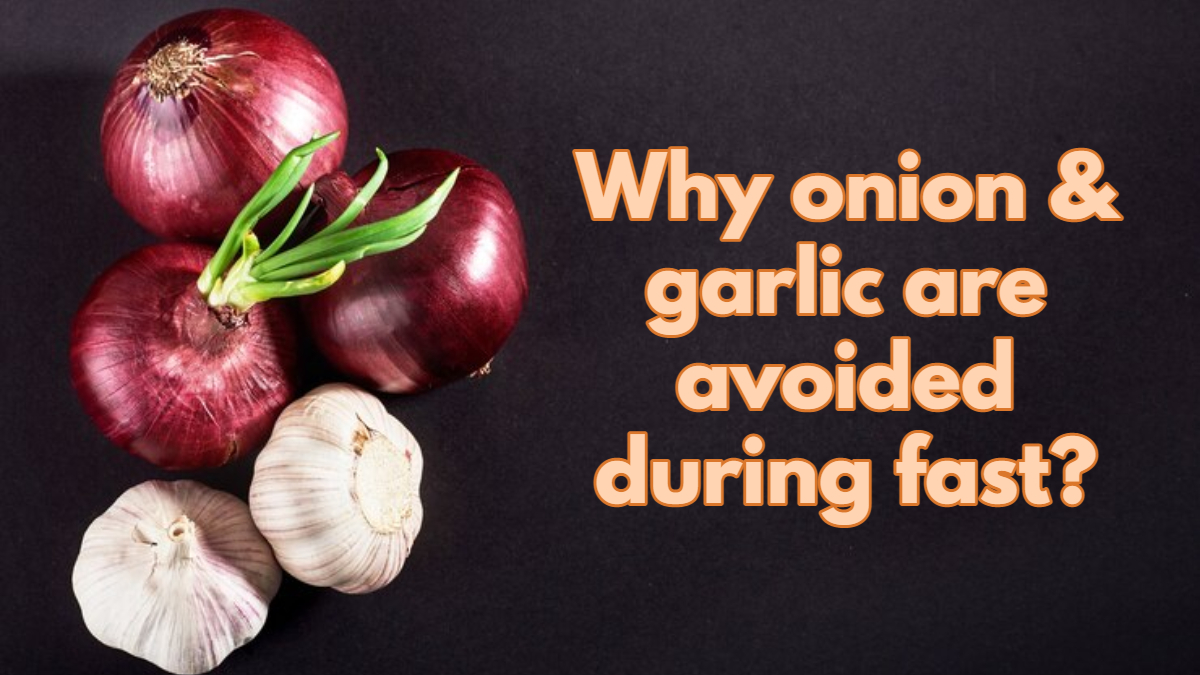The nine-day festival dedicated to Goddess Durga is celebrated all across the country with great zeal. The auspicious days are said to attract prosperity and happiness for the whole year. While the festival is full of devotion and fervour it also boasts of feats. Food continues to be an integral part of festivities. While some choose to have elaborate feasts, others keep a fast by consuming fruits and milk or restrict themselves to one meal a day. Those observing fast refrain from eating onions, garlic and non-vegetarian food. But do you know the reason why onions and garlic are not eaten during fast? There is a mythological and scientific reason behind this.
Why onions and garlic are forbidden during fast? Mythological reason
According Hindu religion, food has been classified into three categories-
- Raajasic Food
- Taamasic Food
- Saatvik Food.
Those who seek spiritual enlightenment are advised to stay away from Rajasic and Tamasic food as they evoke carnal desires and increase mental lethargy. Onions are also said to produce heat in the body. Therefore, they are avoided during the Navratri fasts. Onion along with garlic is also known as 'Rajogini' that refers to substances that make one lose grip over their instincts, making it difficult to distinguish between your desires and priorities.
The science behind avoiding onion and garlic
On the other hand, there is a scientific reason for avoiding onion, garlic and non-vegetarian food as well. Navratri falls twice in a year, first in the months of March-April and secondly during September-October. These months usually mark the transition period of the weather. It is said that during this time of seasonal change, our immunity tends to decline and switching to light or saatvik food that does not burden your digestive system helps. Eating saatvik food may also help in keeping away from toxins that may result in greasy, heavy or unhealthy food, and eventually cleanses our body of all impurities.
Food you can eat during Navratri fast
Flours and Grains
- Buckwheat flour (Kuttu Ka Atta)
- Water chestnut flour (Singhade Ka Atta)
- Amaranth flour (Rajgira Ka Atta)
- Barnyard millet flour (Sama Ke Chawal Ka Atta)
- Barnyard millet (Sama Ke Chawal)
- Arrowroot flour
Spices and herbs you can consume during Navratri
- Cumin
- Black pepper
- Rock salt
- Green cardamom
- Cloves
- Black peppercorns
- Nutmeg
- Dried pomegranate seeds
- Ginger
- Green chilli
- Lemons
- Carom seeds
- Dry mango powder
- Red chilli powder
- Coriander and mint leaves
- Curry leaves
Vegetables to eat during Navratri
- Potato
- Pumpkin
- Sweet potato
- Colocasia
- Yam
- Raw banana
- Raw or semi-ripe papaya
- Tomatoes
Apart from these, you can also eat fruits, lotus seeds, dry fruits, sabudana, dairy products, sugar, honey, jaggery, tamarind, coconut milk and oil, melon seeds, peanuts and groundnut oil.

